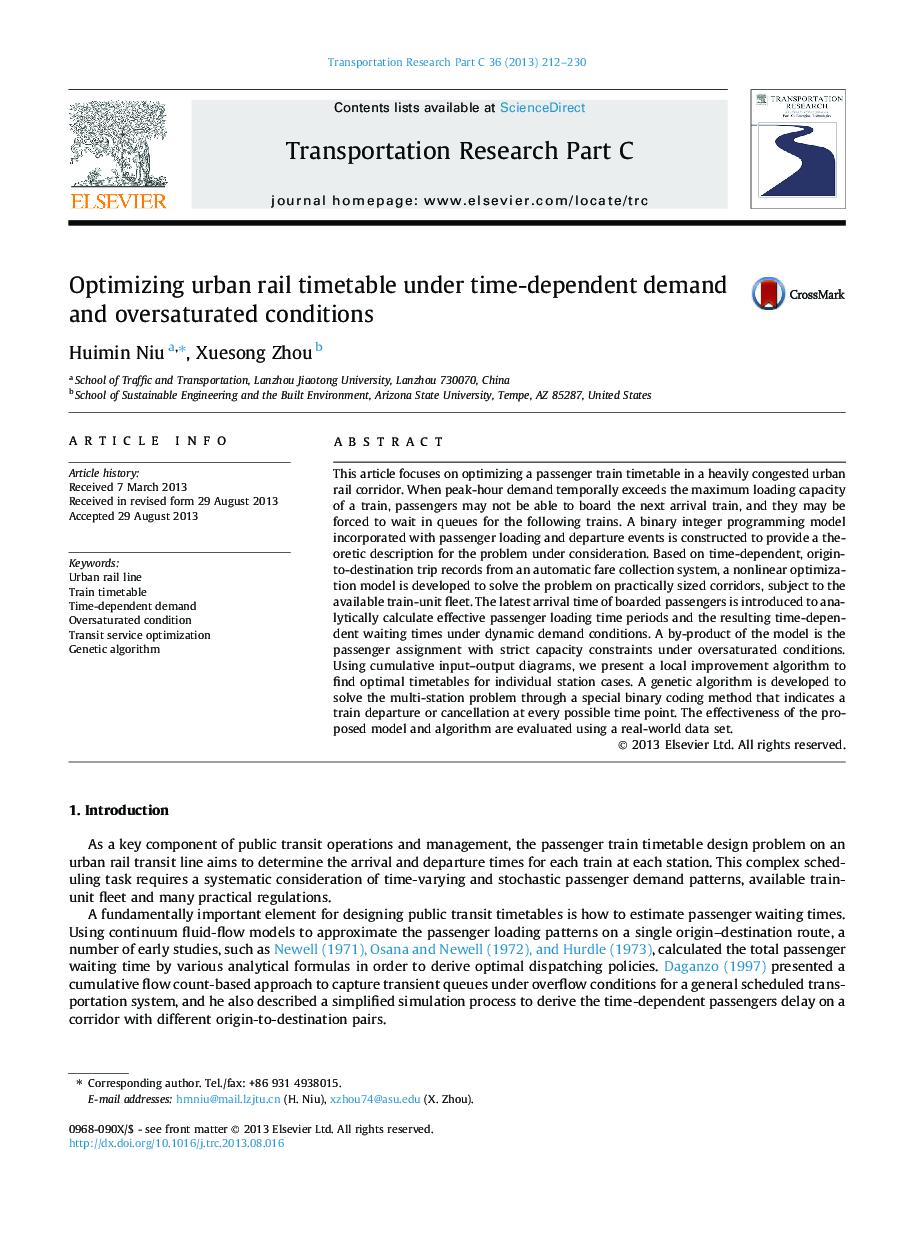| Article ID | Journal | Published Year | Pages | File Type |
|---|---|---|---|---|
| 6937265 | Transportation Research Part C: Emerging Technologies | 2013 | 19 Pages |
Abstract
This article focuses on optimizing a passenger train timetable in a heavily congested urban rail corridor. When peak-hour demand temporally exceeds the maximum loading capacity of a train, passengers may not be able to board the next arrival train, and they may be forced to wait in queues for the following trains. A binary integer programming model incorporated with passenger loading and departure events is constructed to provide a theoretic description for the problem under consideration. Based on time-dependent, origin-to-destination trip records from an automatic fare collection system, a nonlinear optimization model is developed to solve the problem on practically sized corridors, subject to the available train-unit fleet. The latest arrival time of boarded passengers is introduced to analytically calculate effective passenger loading time periods and the resulting time-dependent waiting times under dynamic demand conditions. A by-product of the model is the passenger assignment with strict capacity constraints under oversaturated conditions. Using cumulative input-output diagrams, we present a local improvement algorithm to find optimal timetables for individual station cases. A genetic algorithm is developed to solve the multi-station problem through a special binary coding method that indicates a train departure or cancellation at every possible time point. The effectiveness of the proposed model and algorithm are evaluated using a real-world data set.
Related Topics
Physical Sciences and Engineering
Computer Science
Computer Science Applications
Authors
Huimin Niu, Xuesong Zhou,
